September 5, 2014: Published in NAILED Magazine. Nick Bantock has been an influence on my writing and my appreciation of art since I first discovered him 17 years ago.
I had a chance to sit down and over the span of a couple months have an email conversation with the man who created a character I named one of my daughters after. We discussed his new guide to creative discovery, “The Trickster’s Hat” and much more.
Read the article at NAILED Magazine here Interview: Nick Bantock
July 17th, 2014: Published in NAILED Magazine. Spiritualized pulled “Ladies and Gentlemen We Are Floating in Space” out of retirement to break the champagne bottle on the the ship that is the newly refurbished historic United Artists Theater in Los Angeles. I was lucky enough to be there for the launch, and I wrote about my experience.
Read the article at NAILED Magazine here How I Hugged a Spaceman
July 11, 2014: Published in NAILED Magazine. I went hunting for Sasquatch in the Pacific Northwest with renowned field researcher and host of Animal Planet’s “Finding Bigfoot”, Cliff Barackman.
Then I wrote about the experience while exploring the wonder and whimsy behind the Bigfoot culture. This is perhaps my favorite non-fiction piece I’ve written.
Read the article at NAILED Magazine here Casting Tracks: Cliff Barackman and Sasquatch Culture
February 5, 2014: NAILED Magazine published my article discussing police violence and the murder of a homeless, schizophrenic man in Orange County, California.
What is justice? How do we achieve justice? Explore these thoughts with me, as well as guest contributors Nicole Bailey (Blank Fiction Magazine) and Enrique Avalos (Santanero Zine).
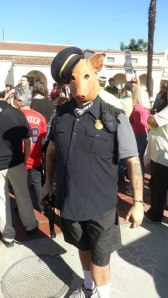 Read the article at NAILED Magazine here Kelly Thomas: Injustice Serve
Read the article at NAILED Magazine here Kelly Thomas: Injustice Serve
Hi there.
.
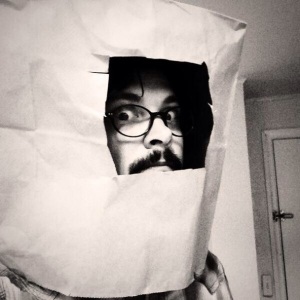
Here I am. Here you are. Here we are. I’ve decided to return to you. A lot has happened since I’ve last managed this site, and I thought you might be interested in a short explanation, and it goes something like this.
.
A little over a year ago, my wife and I uprooted our big little family from Southern California and we planted ourselves in Portland, Oregon. The transition was rocky and our day to day felt like we were trying to navigate through rolling earthquakes (ask me about it some day if you’re ever bored). In order to normalize our lives, we focused on things we wanted to do, while still managing things we had to do. This left us very busy. While my wife was developing and insane, gorgeous, and delicious garden, I was a tenderfoot exploring the homebrewing community. We introduced some chickens (who are now providing wonderful eggs for our consumption) to our home, and we became very active in our community and church.
.
While this was all happening, I began writing for NAILED Magazine. I was grateful to be welcomed to the NAILED family and one of their Editors-in-Chief, Carrie Seitzinger began publishing my writings. I haven’t been writing like I should (yes, I’m aware this is a self-regulated “bar”), but this was a great way to keep me rolling and not getting caught up completely by office life (new city/new job = insanity) and home life as amateur, albeit successful, homesteaders. Writing has always been important to me and it would be a crime (yes, I know this is a self-governed law), to simply stop, which would have been very easy to do after acquiring my MA in English and needing a vacation from reading and writing at the same time we were spending all our mental and physical resources on our 1,000 mile move.
.
Anyhow, Carrie has since made me an Editor for NAILED Magazine, and my writings are now posting under my own name. This is very exciting to me, but I don’t want my first several articles to get lost since, while I was the author, it’s under Carrie’s editor profile. So this drove me to once again put everything here in one place (as was my original plan when developing this thing). It’s a good time for me to return, and while there’s a very good chance this may hit very few eyes, if any, I thought my return to the wordpressphere should be prefaced with an open letter to you.
.
So here I am, and here you are, and we are, all together sharing this moment.
.
All the best to you, and thanks for taking time out of your day to read my ramblings.
.
JB
It’s true. I had the unfathomable privilege of interviewing one of my favorite writers who recently landed on Time Magazine‘s 2013 list of the 100 most influential people in the world. The interview was published in DASH Literary Journal alongside work from (and interviews with) Ron Carlson, David Hernandez, Kate Gale, and many other talented writers. I encourage you to buy a copy, not only because I shared the Editor-in-Chief responsibility for this issue, but because it is just truly a fantastically constructed magazine filled with exceptional content. Please visit DASH’s online locale for more details. Below is the interview I conducted with George Saunders as published.
A Very Brief Interview with George Saunders
by Joseph Blair
George Saunders has a long list of accolades. He is a MacArthur Fellow, New York Times bestselling author, PEN/Hemingway Award and O. Henry Award recipient, and he was recently the topic of The New York Time’s article “George Saunders Has Written the Best Book You’ll Read This Year,” published only three days into 2013. Despite the grandiosity of his name and the prominence of his reputation as a literary dynamo, Saunders has proven himself perhaps the nicest, most approachable person I have encountered in the field of literature. Recently, he graciously spared time out of his expansive Tenth of December tour to sit down and answer a few questions for us. As expected, his answers were nothing short of illuminating and insightful.
**
DASH: Mr. Saunders, congratulations on the wild success of your latest collection, Tenth of December. Your talent has been undeniably established and recognized on many levels over the last ten years, yet it seems this recent publication has hoisted you into a broader public eye. I want to thank you for taking time out of your day for this—time that I know is valuable and I don’t want to waste—so why don’t I just jump right into it:
Recently, it seems like I haven’t heard your name without “the writer of our time” tagged to the end. Do you believe there is any added pressure with this descriptor? Do you think these sorts of depictions affect the way you write or how you think about your writing?
George Saunders: I hope not. One of the blessings I’ve had these last 20 years or so was relative obscurity, and that is a great place to get some work done. Lately, yes, I can feel a ripple in the way things are for me professionally, for sure. And that’s been pretty fun and maybe a little alarming. You sort of feel, like: “Aiyee! I’ve got all these people on the line now, hope I don’t let them down with the next thing.” But the thing is, I really love to work, and I can’t wait to get back to it. And I find that – maybe from all these years of doing it – once I get working, any expectations (mine or those of other people) tend to fade away and I just get absorbed in the story. I think the key thing, always, is to get freshly involved in the story you’re working on and forget everything else.
DASH: You excel at bringing believable humor and otherworldliness to the (allegedly) mundane reality of everyday life, and in so doing, make it enjoyable for people to read deeper morals and often uncomfortable truths interwoven into your writing. Where do you think these real-life entities intersect with those of (for lack of a better word) “science fiction”?
GS: For me the trick is to sort of banish that distinction. What if we just say: “real” and “sci-fi” are just categories and we are going to, temporarily (i.e., while working), disallow them? Real life is full of magic and scary truths and all of that. The problem is, we get so habituated to seeing things in terms of “conventional reality” that we gloss over the terror and the beauty. So if we are going to get the proper amount of terror and beauty into stories, it might be necessary to sort of shake the table, so to speak; to suspend the idea that a story is some sort of linear representation of “how life is” and regard it instead as a machine to produce thrills (or emotion, or escalation – whatever).
DASH: Critics love comparing writers to other writers, and you have not been immune to this trend. Have any comparisons ever thrilled you? And on the contrary, are there any that surprised you or you thought didn’t make any sense?
GS: Honestly, I have low enough self-esteem that any comparison, to any other writer, is welcome. With respect to being part of the community of writers, I feel a bit like Steve Martin’s character in The Jerk: “I just want to be in there somewhere.”
DASH: Did becoming a MacArthur Fellow “Genius Grant” recipient in 2006 change the way your family or friends thought about you?
GS: I don’t think so. I hope not. It maybe changed the way I think about me. Suddenly I could somewhat stand myself. Ha. No. Well – yes and no. I think the biggest benefit was just that uplift that came with the idea that some people, far away, had done this extensive vetting process and judged my work worthy. That was literally “en-couraging,” i.e., it gave me courage. When I was writing this new book, when I got to a point where I wasn’t sure what to do, I often felt myself erring on the side of the bolder choice, partly fueled by the faith of those people at the MacArthur who thought enough of my work to give me the fellowship.
DASH: When did you know you wanted to be a writer? And what advice might you offer to emerging writers who are seeking to establish careers in what is—to say the least—a rather uncertain time for the field of literary publishing?
GS: I think of that bit in (I think) Hemingway, where there’s the description of someone going broke “suddenly and then all at once.” That’s how I decided to become a writer. I always loved the idea of it, and then gradually screwed up the other things I could have done (mostly by quitting my oil industry job), and then before long it was sort of like: “Well, you keep saying you want to be a writer, and nothing else is working out at all, so maybe it’s time to get to it.”
DASH: In “Tent City USA” (originally published on twenty-something GQ Magazine pages—now more easily accessible through various blogs who have compiled the piece for a simpler read), you spent a bit of time doing field research and living among the homeless at the H Street Encampment in Fresno, California. Have you ever thought about returning and seeing how things have changed or who may still be around?
GS: I keep thinking of expanding that piece to book length and then, yes, a return visit would be a necessity. The City of Fresno actually closed down that particular site as part of a very visionary program where they bought each person six months of rent somewhere and assigned each person a counselor to make sure the person got all the government help they were owed, and to help them apply for jobs and/or get whatever rehab services they needed. So, I’d be very happy to see how that worked out. The tent city was on railroad land, and once they got everybody out, I think they padlocked the site.
DASH: Has teaching creative writing at Syracuse University in the MFA program affected your writing or the way you view your audience?
GS: I’m not sure. The one thing it has done is keep me optimistic about “the youth.” I sometimes hear people my age complaining, re. “The kids these days,” but then it always turns out that the person saying that isn’t working with any. The students I get are so good – both as writers and as people – that it is just continually cheering. Nothing is lost on them; they are generous, they are voracious readers – just a total blessing and privilege to be around them. It makes me feel like our literary culture is in very good hands.
DASH: Lester Bangs said, “Rock ‘n roll is an attitude, it’s not a musical form of a strict sort. It’s a way of doing things, of approaching things. Writing can be rock ‘n roll.” Have you ever considered your writing to be rock ‘n roll, or is that specifically saved for your guitar playing on the side?
GS: No, my guitar playing is so lame that there is very little rock ‘n roll in it.
I love rock music but, honestly, am a little skeptical of the “rock ‘n roll attitude” – at least as it often manifests. I think it’s because I lived through the 1970s and saw how rock ‘n roll can be used as an excuse for a lot of things: sloth, sloppiness, cruelty, empty posturing, nihilism, getting so stoned you can’t talk, and so on. Obviously, “real” rock ‘n roll is something better – that I’m all for. I think a piece of writing can sometimes take off and get daring and a little ragged, just because it is so in search of truth – that is something you sometimes hear in a great song. And I definitely aspire to that moment, when all former stodgy ideas of beauty and form get left behind because the prose is speeding off so desperately in search of something it can’t quite reach…
DASH: Lastly, have you considered writing that all-American novel “of our time,” or do you plan to continue down the path of short fiction, which has been so successful for you thus far?
GS: My only plan is to keep doing what I’ve been doing, which is letting each story tell me its ideal length, in real-time. No expectations, no plan, no preconceptions about what a piece is going to be.
DASH: Thank you kindly, Mr. Saunders.
GS: My pleasure.
I recently won a Cal State prose contest for graduate students with a piece titled, “Four Faxes from the Desk of Benjamin Stout.” Now, this piece is out for review at a publication that does not allow it to be posted elsewhere, so instead of posting that piece, below is a piece I wrote hastily (in about 25 minutes) for a short fiction contest that I have no plans to do anything with it–so here it is for your reading pleasure?
The Collector
Dmitri passed sign after sign posted to street lights and trees throughout the quiet neighborhood, ignoring each one. Hand-written on weathered sheets above a picture were the words, “Lost Cigar Box: If Found Please Call. URGENT.” A phone number was scrawled below in crimson letters.
No, he thought, It’s my cigar box now.
For two weeks, Dmitri passed approximately 120 of these fliers on the way home from his supermarket job, and each day he grew more calloused.
Dmitri finally reached his home and let out a deep breath.
He went inside, and without turning on a lamp, despite the hasty fading of daylight, he walked to his closet. He pulled one of many cigar boxes out—the same from the fliers.
The owner cannot be a collector like me, Dmitri reasoned, I deserve this, not him.
However, Dmitri hadn’t been able to open the box. It was sealed with something invisible. He tried again with a butter knife, but afraid of ruining the striking rarity, he again relented.
A knock came from the door, and Dmitri carefully set the box back in the closet atop the stack.
“Old man, you home?” A panicked adult voice came through.
Dmitri closed his closet and sat on his tweed sofa, now in the dark.
“I saw you come home.”
Dmitri said nothing. He could hear the man panting.
“I think you have what I’m missing. You’re the collector, right?”
Still, he remained silent.
“Damn it! Open up.”
Dmitri strolled to the bathroom while the man pounded.
He flushed the toilet and shouted back, “I was in the john, hold your horses!” Dmitri turned on the living room’s dim light and opened the door.
“Can I help you,” he coldly asked.
The man was middle-aged but completely gray. Even his skin was gray. He was bent over, resting hand-on-knee, breathing heavily. His other hand rested on the bricks above the doorbell.
“This is very important,” His words were broken by his panting.
“Yes?” Dmitri scowled.
“You’re the cigar box collector, right?” The man stood up and looked him over, but appeared in pain.
“I don’t have your box.” Dmitri turned, leaving the door open and sat on the arm of his sofa.
“It’s not the box I need. It’s what’s in it.”
“Well, you’re out of luck. It won’t open,” Dmitri’s face paled realizing what he said.
The gray man grinned. “Bring it to me, please.”
“First tell me what’s in it. And promise not to damage the box when you open it. It’s very collectible.”
Dmitri limped slowly to the closet. He didn’t have a limp, but he liked looking vulnerable when making a deal.
Retrieving the box, Dmitri ran his fingers across the engraved initials, “F.E.L.D.”
“The box contains my soul.”
Oh, so this guy’s a nut. Dmitri smirked and brought it to the man.
“Thanks God,” nervousness and relief painted the man’s expression. “I was so afraid I’d get stuck on earth eternally.
“Open it,” Dmitri said, intrigued and handed it to him.
With ease, he unclipped the lock and opened the cigar box.
Inside lay a kangaroo mouse on its side, shallowly breathing. Dmitri noticed the mouse’s and man’s breaths were in sync.
“What the?“ Dmitri let out.
“There’s no time!” The man gently grabbed the mouse and let the box fall.
“Careful!” Dmitri miffed. He picked up the box and watched as the man put the mouse in his breast pocket and hastily walked off.
“Now that you’re sticking around,” Dmitri shouted, “take all those signs down. They’re polluting our town.” And he closed the door.
B-6 on an Atomic Jukebox
A man presses “B-6” and the Cheez–It® crackers
stick in the goddamned machine.
Just stuck there to a 12 gauge SST spiral
waiting to fall, always, waiting to plunge down.
Waiting to be consumed.
.
A child shouts “B-6” and another shouts,
“You sunk my battleship!” and the first replies,
“My dad was on a battleship when the Clemente Island
nuke dropped.”
“I’m sorry.” The boys say a six second prayer.
The first calls another shot.
“Hit!”
.
Just hours after tasting his wife’s lips for the last time,
the Chief of National Defense receives the directive
from the Commander-in-Chief to send fifty megatonnage
to the glowing green B-6 grid on a modest screen,
and nickel plated keys are simultaneously turned.
.
Twenty-five megatons had previously
been agreed upon, but humanity played second violin
in the key of B, accompanying a choir
of crickets, silencing. Scores of people
never return home.
Some refuse to.
______
Little Sketches of Nautilus Beasts on Atlas Maps
A sea monster does not hold certain its own existence
nor does the soul of one so callused know of a God
but when he weekly enters into a temple
and a man garbed in black pleas for money
the uneasiness of the attender is left to question why
a God so perfect
would need so much
and so he returns home
not knowing if the sea exists
nor the deepest and most callused monster
As to not disqualify myself from npr’s three minute fiction contest, I took down the story “Shrink-n-Fit” immediately after posting. I shouldn’t have put it here in the first place, but I posted, then submitted and read the rules, only then (minutes after posting) learning I wasn’t to do that. It’s a good thing nobody reads the blog anyway. While I don’t suspect I’ll be in a position to win by any means, I couldn’t take the risk.
Humbly,
Joe
The Crown Top Cap
“C’mere, Daisy. C’mere,” Ray reached into a pocket on his wheelchair and pulled out a tissue. “Here.”
Daisy’s tears streamed down her rosy cheeks as the hiccup cries of the five year-old continued, and she sat on the paint-worn wicker love seat beside him.
“Mom said we don’t have enough money for tap shoes so I can’t take dance after class, and it starts tomorrow!” Her face welled, and she burst out blubbering.
“Hold on, sweetie. There’s a solution for everything.” Ray shuffled through the hallways of his mind, trying to figure where the maze might lead and what answer he would find at the end. He ran his fingers through the knots of his gray beard down to his bulbous belly.
“Hold on, sweetie.”
“What?”
“Can I tell you something?”
“I guess.” Her crying quieted. Tears continued to trickle.
“This is partly my fault.”
“Why, Unka?”
“After the war,” he rubbed her back and stared at the mock-mosaic floor lamp as he spoke, “I wasn’t able to work and, well, haven’t been able to. My sister -your ma- was kind enough to let me move in with her, and my government money hasn’t been enough to cover the cost of having me here. I’ve been livin’ with your ma long before you were born. She’s been taking care of me, like she does you. If I wasn’t here, she could be somewhere better than this trailer park. Somewhere less miserable than Tucson. It’s really all my fault, and I’m sorry.”
Daisy didn’t say a word and ran into her room, slamming the door behind her. Ray could hear her bawling through the paper-thin walls. He rolled around in circles listening to Daisy’s cries diminuendo into silence, figuring at that point she fell asleep. After a few moments, he rolled in, wheels catching on the door frame, making a terrible ruckus. She slept through it. Finally, he found his way to her closet and pulled out a threadbare pair of hand-me-down faded-red Nikes that she only wore if her ma had the other pair of shoes in the wash.
Daisy woke to the commotion Ray made when trying to leave her room.
“What are you doing, Unka?”
“I’m going to make you tap shoes,” he smiled.
She jumped out of bed, ran the four steps it took to reach him, and clumsily wrapped her arms around him.
“How?”
“C’mere, I’ll show you.”
She pretended to push him while he controlled the wheelchair and rolled into his bedroom. He pulled out a navy denim bag about the size of a watermelon.
“I’m sure you noticed I leave every night for a bit.”
“Yeah, Unka, why?”
“I collect bottle caps. I roll around in the dirt, as far as I can go without my arms goin’ weak. Me and my metal detector, and we find bottle caps. See my arms? They’re just long enough to reach the ground.” He strained his voice when showing her.
He pulled a hammer out of an old rusty cheery red tool box and dumped contents of the denim bag on his bed. The glimmer of metallic crown top bottle caps clinked into a mountain of reflective light breaking through the dirt and mud, as he never cleaned the things.
“They’re not worth anything, I just do it to have something. Anything. I need something. It’s too hot during the day, so I go just before the sun starts to set. I’d go crazy if I didn’t.”
He grabbed a Dad’s Root Beer cap and hammered it into the front her left shoe’s sole. Then a Diet Coke into the back of the sole. He noticed one with a horse on it that he thought she’d like because it was pretty and hammered that into the back of her other shoe’s sole. The last was hardest to hammer. It said “Holiday Heinies” on the cap, but the underlay was filled with cork, and this made the cap require an extra tap to feel firmly affixed to her shoe.
“Here,” he said handing the pair to her. “Go try ‘em out the stairway out front.”
She ran outside. He heard clicking, clacking, then the patter of feet on the carpet, and he found her embracing him again.
“Thanks so much Unka!” She had tears in her eyes, but this time with a blooming chapped lip smile. “I’m going to sleep so I don’t have to wait so long for tomorrow,” she said, running into her room and slamming the door shut.
Ray slept most the day. September heat made him weary and his legs sore. He despised sweating, and even in bed he was drenched. He was awakened by clicking, clacking, and the quiet thumps of hustling feet on the carpet, and a knock at his door. He could smell his sister’s stew, but he hated stew when it was this hot out.
“Come in.” He didn’t have to raise his voice to penetrate the thin walls.
“It’s magic, Unka!”
“What happened?” He looked down at a new pair of bright white tap shoes, radiating through the shadows of his dimly lit room. He hadn’t seen anything that clean in a long time. “What happened to your sneakers?”
“Oh, I threw them away.”
“You did?” Ray grimaced. “I thought you loved them.”
“I did but Mr. Smit, our dance teacher, said I can’t use them. Then he looked at them and saw the things you put on them. And he liked one so much, he gave me new shoes for it. He said if I give him that, he’ll give me shoes and I can dance. So I did! And he’s dumb, because he left the horsey one and took the one with the wood on the bottom. And that’s dumb because that was the hardest to put on a shoe to make a tap shoe.”
Ray started to cry, “I’m happy for you, sweetie. I am.”
“Then why are you crying?” asked Daisy.
“Just sometimes you feel like crying.”

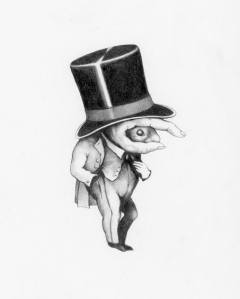
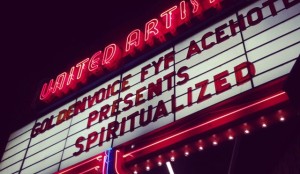
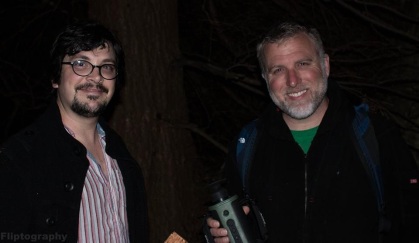
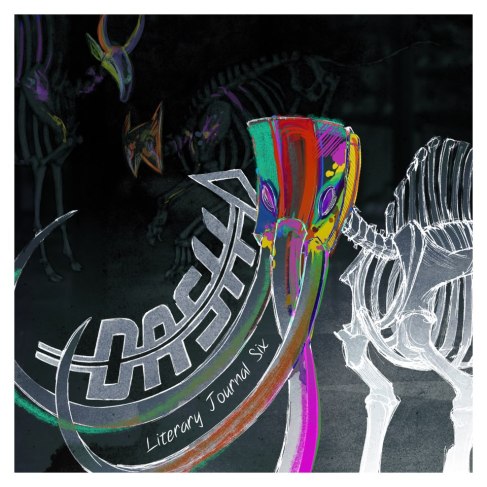
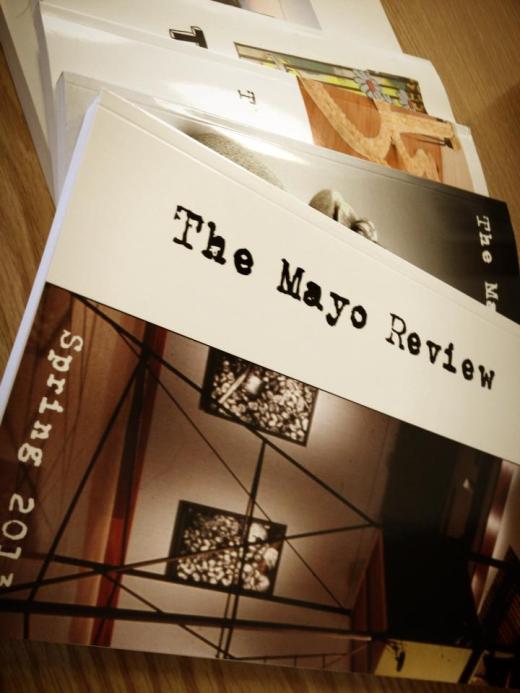
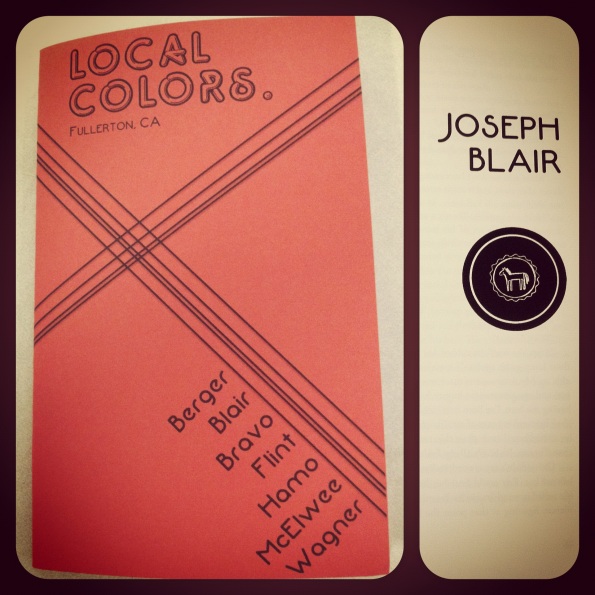
You must be logged in to post a comment.